I used this thread to split a large text file into several smaller files. To split the file I use the following command in Git Bash:
split -l 80000 largeFile
I then want to edit each of the output files, but when I open them in VI, the output looks weird and I cannot properly edit the file. The output contains a lot of @ symbols and carets. I assume that these are control characters. See the following screenshot:
My questions are:
- Why is the file displayed like this?
- How can I properly edit the file in VI?
